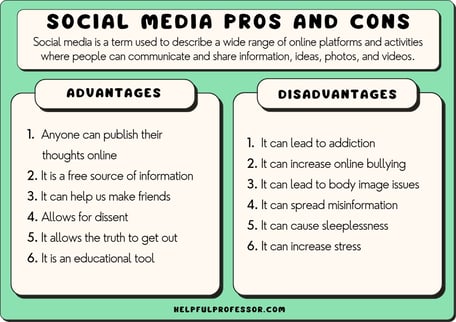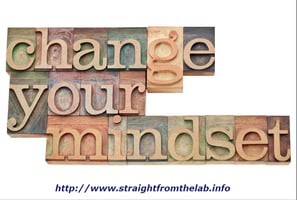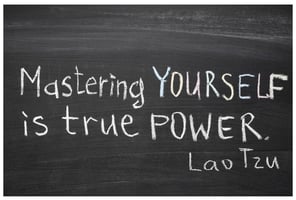Coloring Your Way to Emotional Clarity: How Building Emotional Intelligence Can Improve Your Mental...
Navigating the Media Landscape: A Holistic Approach to Personal Well-being--Beyond the Propaganda Mill
Navigating the Media Landscape: A Holistic Approach to Personal Well-being--Beyond the Propaganda Mill

In the 21st century, the media has become omnipresent, shaping our perceptions, influencing our opinions, and inevitably impacting our overall well-being. The constant stream of information, often saturated with fear, conflict, and negativity, plays a crucial role in our daily lives. Understanding media's profound influence on our personal state and health is essential in cultivating a balanced and mindful approach to information consumption. Media's pervasive influence on our state of mind and welfare must be tempered through the filter of personal awareness and self-discipline. If we don't learn to manage our media engagement, media will manage and control us, our mental and physical health outcomes, and more. For years, I have sounded the clarion concerning the pervasive nature of media, and the rise of social media has only served to exacerbate its negative impact.
The media's tendency to focus on fear, conflict, and negativity contributes significantly to the stress and anxiety levels experienced by individuals. The 24/7 news cycle bombards us with a relentless stream of alarming headlines, dramatic visuals, and sensationalized stories. While this may capture our attention in the short term, the long-term effects on our mental and physical health can be detrimental. This perpetual cycle of sensational stimuli pushes us from one dramatic event to the next, never allowing us to examine the information more critically to draw unique and varying observations.
The human body's response to constant stress is a well-documented physiological phenomenon. The release of stress hormones such as cortisol and adrenaline is the body's natural reaction to perceived threats, preparing us for the "fight or flight" response. In short bursts, this response can be beneficial, helping us navigate challenging situations. However, when exposed to a continuous flow of negative information, the prolonged release of stress hormones can lead to chronic stress. Chronic stress, in turn, takes a toll on various aspects of our health. The nervous system, organs, and immune system bear the brunt of this sustained assault. Studies have linked chronic stress to a myriad of health issues, including cardiovascular diseases, compromised immune function, and mental health disorders. Recognizing the connection between media exposure and stress is the first step in addressing its impact on personal well-being. To exacerbate the matter, our mobile devices are designed to trigger dopamine releases in the brain every time we touch them, which is why it is so hard to put them down. Hyper-consumption of information is completely out of control.
Chronic stress, in turn, takes a toll on various aspects of our health. The nervous system, organs, and immune system bear the brunt of this sustained assault. Studies have linked chronic stress to a myriad of health issues, including cardiovascular diseases, compromised immune function, and mental health disorders. Recognizing the connection between media exposure and stress is the first step in addressing its impact on personal well-being. To exacerbate the matter, our mobile devices are designed to trigger dopamine releases in the brain every time we touch them, which is why it is so hard to put them down. Hyper-consumption of information is completely out of control.
Beyond the physiological effects, the media's influence extends to cognitive and emotional realms. The way information is presented often lacks depth and nuance, discouraging critical thought and nuanced understanding. Media outlets, driven by the need for high viewership and engagement, package news in attention-grabbing formats, prioritizing sensationalism over substance. This constant stream of superficial content limits our capacity for personal growth, intellectual understanding, and emotional healing.
In a world where information is readily available at our fingertips, the challenge lies in distinguishing between the noise and the essential. The media's role in shaping public opinion is significant, and individuals must navigate this landscape with discernment. Developing media literacy skills is crucial in deciphering the intentions behind news stories and recognizing bias or sensationalism.
Furthermore, the rapid pace at which information is disseminated in the digital age contributes to a culture of instant gratification and short attention spans. The media's constant shift from one dramatic event to another leaves little room for in-depth exploration and contemplation. As a result, our ability to engage in meaningful discourse, cultivate a deeper understanding of complex issues, and foster personal growth is compromised.
Empowerment in the face of media influence comes from a conscious and mindful approach to information consumption. It involves recognizing external forces for what they are – powerful influencers that shape our perceptions and emotions. By understanding the impact of media on our well-being, individuals can take control of their media intake, determining the volume of exposure to stimuli and choosing how to respond.
Remember...
It is never just music.
It is never just a movie.
It is never just a documentary.
It is never just the news.
It is never just entertainment"
You should always question the agenda and the subliminal message or narrative being promoted by the media.
One effective strategy is to curate one's media diet deliberately. This involves being selective about the sources of information consumed and diversifying the content to include positive and constructive narratives. Seeking out sources that prioritize balanced reporting and in-depth analysis can contribute to a more nuanced understanding of the world.

Moreover, setting boundaries on media consumption is essential. Establishing designated times for checking news updates and avoiding constant exposure can help mitigate the negative impact on mental health. Engaging in activities that promote relaxation, such as mindfulness practices, exercise, or spending time in nature, can counteract the stress-inducing effects of media exposure. You are responsible for your mental and emotional well-being, and you must exercise discipline in rebutting the inexorable push of media narratives that negatively impact your state of being.
Building media literacy skills is another critical aspect of navigating the media landscape effectively. Understanding the motives behind news stories, recognizing bias, and fact-checking information contribute to a more informed and discerning approach to media consumption. Educational initiatives promoting media literacy should be encouraged to empower individuals to evaluate the information they encounter critically.
In conclusion, the media's influence on personal well-being is multifaceted beyond immediate emotional reactions to news stories. The continuous stream of fear, conflict, and negativity can have lasting effects on our physical, mental, and emotional health. Recognizing this influence and adopting a mindful approach to media consumption empowers individuals to take control of their well-being. By curating their media diet, setting boundaries, and developing media literacy skills, individuals can intentionally navigate the media landscape, fostering a healthier relationship with information and promoting overall well-being.
Learn how you can work with Dr. Wallace on a 1-on-1 basis: Click Here!





